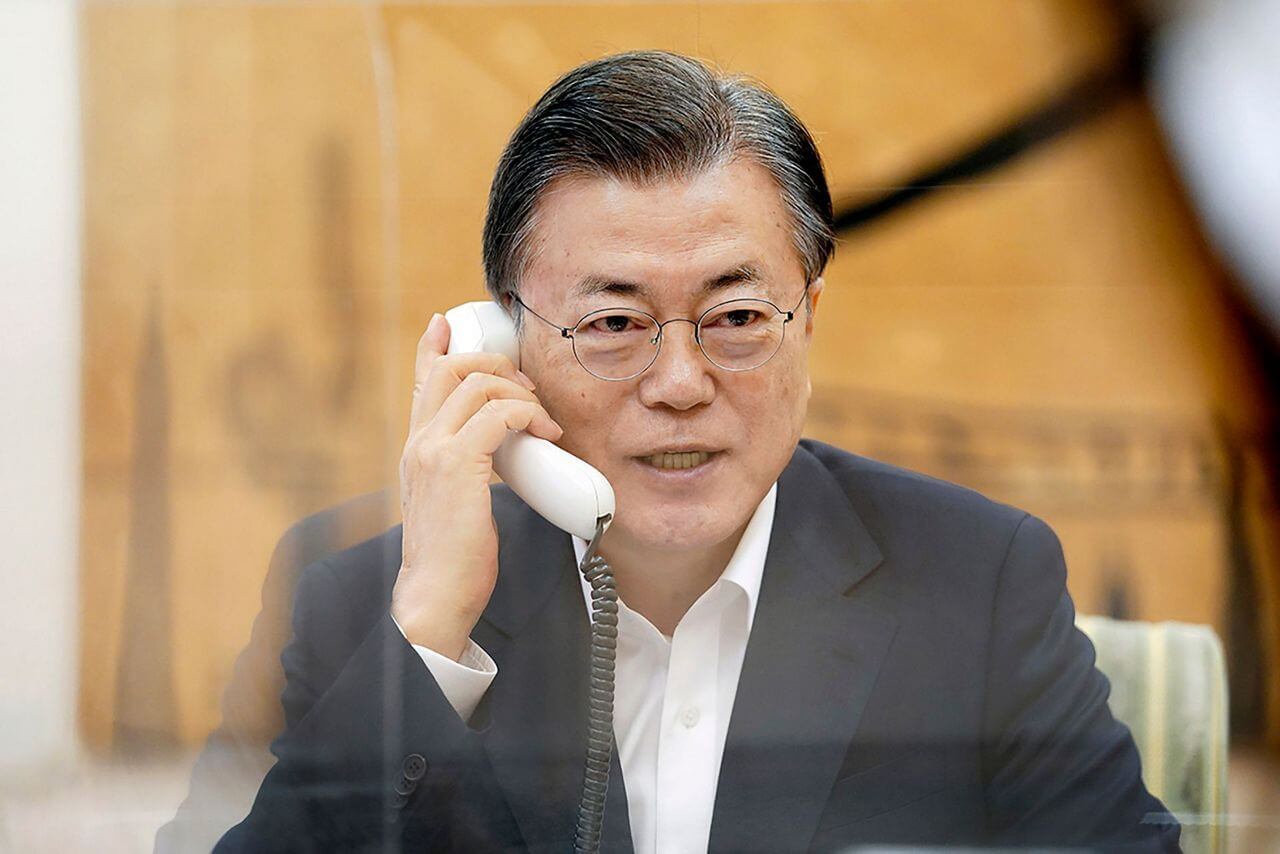United States (US) President Joe Biden spoke with his South Korean counterpart Moon Jae-in for the first time since taking office on Wednesday and reaffirmed his commitment to the US-Republic Of Korea (ROK) alliance.
According to Moon’s office, the leaders spoke for 32 minutes over the phone, wherein they expressed their willingness to work together to advance their bilateral relations in a responsible manner, rooted in shared values that champions democracy, human rights, and multilateralism.
The presidents also agreed to “coordinate closely” to achieve the denuclearisation of the Korean peninsula and bring “permanent peace” to the region and shared a common understanding that doing so would require a comprehensive strategy towards North Korea.
Also read: The Challenges to Denuclearization and Peace on the Korean Peninsula
Though North and Korean leaders met over three summits in 2018, ushering in a wave of hope about refining their relationship, links between them have rapidly deteriorated since Kim Jong-un’s talks with US President Donald Trump collapsed in 2019 with no agreement regarding denuclearization or easing UN sanctions on the country. In July last year, Kim Jong-un further expressed his belief that a nuclear arsenal will guarantee his country’s national security, which served as an important reminder of just how difficult it is going to be to get North Korea to abandon a program it deems as fundamental to its survival.
However, working towards peace and reconciliation on the Korean Peninsula has been an important agenda item for President Moon Jae-in, who has repeatedly advocated for dialogue between the two neighbours, and has even called for the US’ support in formally declaring an end to the Korean War, which ended in 1953 with an armistice rather than a peace treaty.
“We will always stand together as we work for peace on the Korean Peninsula and tackle global challenges,” Moon said in a separate statement on Twitter after his call with Biden. He also welcomed “America’s return” in the face of mounting international challenges such as climate change, COVID-19, and economic polarization. On their call, the leaders spoke about their commitment to tackling these issues and vowed to cooperate on matters like the distribution of COVID-19 vaccines and treatments, that would subsequently contribute to the recovery of the global economy.
With regards to the Indo-Pacific, the two sides agreed that improving the relationship between Seoul and Tokyo was crucial, along with strengthening trilateral security partnerships. The presidents also exchanged their concerns about the recent developments in Myanmar and agreed to cooperate to resolve the issue in a democratic and peaceful manner.

